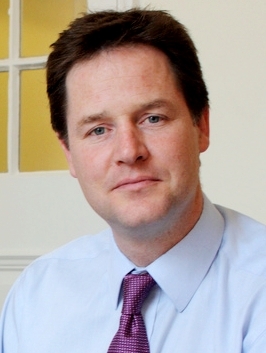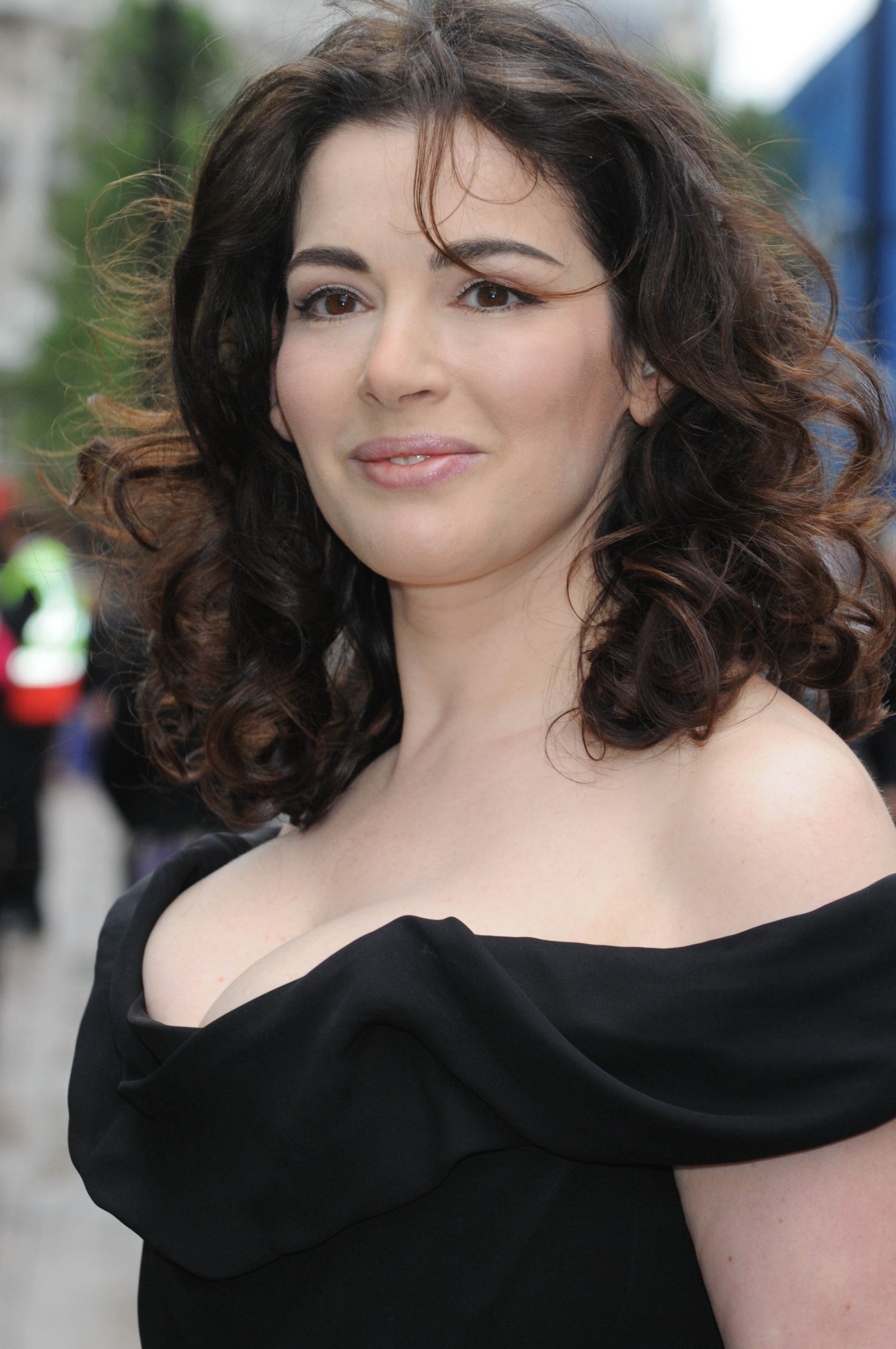January 6
Nick Clegg

On this date in 1967, Nicholas William Peter Clegg was born in Chalfont St. Giles in Buckinghamshire, England. He speaks five languages: English, Dutch, French, German and Spanish. Clegg studied anthropology at Cambridge University and received a Master’s degree in political philosophy at the University of Minnesota. He interned at The Nation in New York under Christopher Hitchens before returning to Europe, where he interned at the European Commission and earned an M.A. in European affairs at the College of Europe in Bruges.
Clegg worked as a journalist and at the European Commission before being elected Member of the European Parliament for the East Midlands in 1999. In 2005 he was the liberal parliamentary candidate for Sheffield Hallam and was elected. Clegg was elected leader of the Liberal Democrats and rose to national prominence in the 2010 general election. The third-party Liberal Democrats received 23% of the vote and he became a power broker, as neither of the two major parties won a majority of seats. Clegg chose to ally with the Conservative Party and became deputy prime minister.
After being elected leader in 2007, Clegg was asked on the BBC Radio program 5 Live if he believed in God. He replied that he did not, though he later elaborated that he had “great respect” for people of faith. Clegg has stuck to his guns, continuing to describe himself as agnostic during the 2010 election campaign.
Clegg’s wife, Spanish-born Miriam González Durántez, is Catholic. They married in 2000 and have three sons.
Since 2013 he has hosted the weekly radio show “Call Clegg” and in 2018 debuted a podcast called “Anger Management with Nick Clegg, ” in which he interviews prominent people about the politics of anger. In October 2018 Facebook announced Clegg had been hired as a vice president, public relations officer and lobbyist in the area of global affairs and communications.
Photo by David Angell under CC 2.5.
BBC: Do you believe in God?
—Clegg, BBC interview (Dec. 20, 2007)
CLEGG: No. … I am not an active believer.
Nigella Lawson

On this date in 1960, Nigella Lawson was born in London to wealthy parents. She is known for her work in food journalism and books and as the host of several cooking shows. She attended the University of Oxford and graduated with a degree in medieval and modern languages. Lawson began her career by writing for several publications, including the Sunday Times, Vogue and the Daily Telegraph. She wrote her first cookbook, How to Eat: Pleasures and Principles of Good Food, in 1998, and since then has written about a dozen cookbooks, including Nigella Bites (2001) and the most recent as of this writing, At My Table: A Celebration of Home Cooking (2017).
She has had her own cooking shows, including “Nigella Bites” (1999-2001), “Nigella” (2005), “Nigellissima” (2012) and “Nigella: At My Table” (2017). She has also been featured on “Top Chef” and “Iron Chef America.”
Lawson married journalist John Diamond in 1992. They had a daughter, Cosima, and a son, Bruno, before Diamond died at age 47 of throat cancer in 2001. She married art collector Charles Saatchi in 2003. They separated in 2013 and divorced after Saatchi assaulted her in public.
“I was brought up an atheist and have always remained so. But at no time was I led to believe that morality was unimportant or that good and bad did not exist. I believe passionately in the need to distinguish between right and wrong and am somewhat confounded by being told I need God, Jesus or a clergyman to help me to do so.”
—Lawson, “We atheists know right from wrong,” The Times of London (June 29, 1996)
Carl Sandburg
On this date in 1878, poet and Pulitzer Prize-winning biographer Carl August Sandburg was born in Galesburg, Ill., to parents of Swedish-Lutheran heritage. The second of seven children, he quit school after the eighth grade and worked at a variety of jobs such as milkman, porter, bricklayer and farm laborer for the next decade. In 1897 he lived as a hobo. He would later perform the folk songs he learned on the road and compiled them into two song books.
Sandburg enlisted in the U.S. Army during the Spanish-American War in 1898 and was stationed in Puerto Rico. After a two-week stint at West Point, he failed a math and grammar exam and left the military academy. He then attended the Universalist-founded Lombard College in Galesburg. Attracted to labor concerns, he became an organizer for the Wisconsin Social Democratic Party and met his wife-to-be Lilian Steichen at party headquarters in Milwaukee. They were wed in 1908 and had three daughters, Margaret, Jane and Helga.
He worked from 1910-12 as a secretary for Emil Seidel, Milwaukee’s socialist mayor, then joined the Chicago Daily News as a reporter. Much of his poetry, such as “Chicago,” focused on the city he famously described as “Hog Butcher for the World/Tool Maker, Stacker of Wheat/Player with Railroads and the Nation’s Freight Handler,/Stormy, Husky, Brawling, City of the Big Shoulders.”
Sandburg earned Pulitzers for the 103-poem Corn Huskers (1919), Abraham Lincoln: The War Years (1940) and Complete Poems (1951). His Lincoln work and the earlier Abraham Lincoln: The Prairie Years (1926) became very influential histories. He was also remembered by generations of children for his Rootabaga Stories (1922). His 1927 anthology, The American Songbag, enjoyed enormous popularity, going through many editions. He often sang and accompanied himself on guitar at lectures and poetry recitals.
A lifelong Unitarian, he died in 1967 at age 89 in his longtime home in Flat Rock, N.C.
“To work hard, to live hard, to die hard, and then to go to Hell after all would be too damned hard.”
—Sandburg, from his book-length poem "The People, Yes" (1936)
